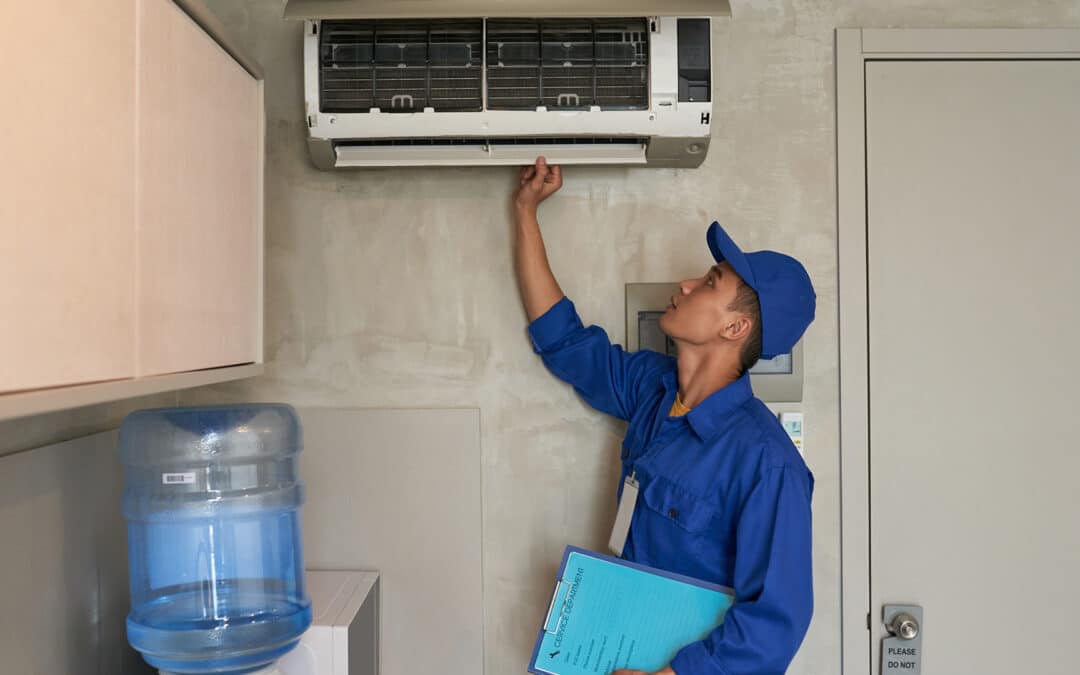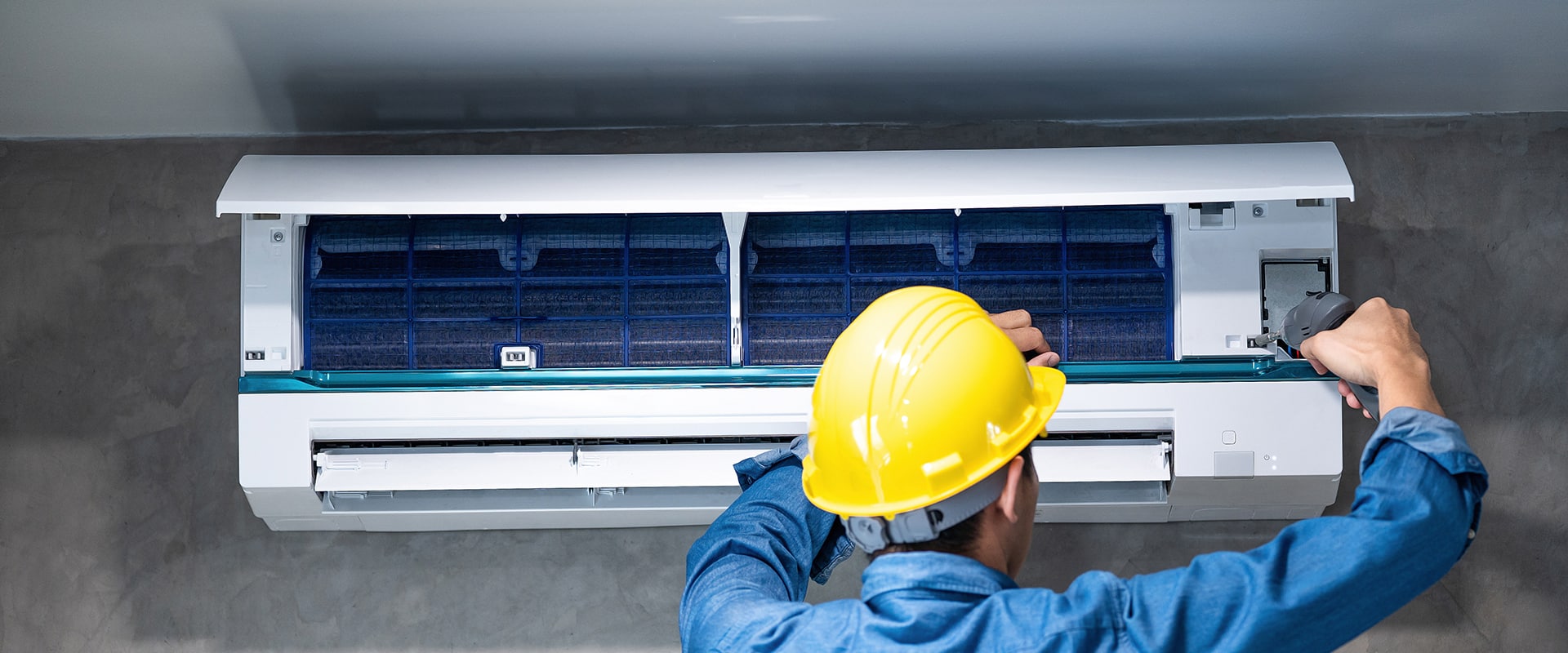Summer is approaching and with it, the heat and humidity that can make our home stuffy. Air conditioning is an effective solution to cool our interior, but it can be expensive and energy-consuming if misused. As a homeowner, it is important to know the common mistakes that can be made when it comes to air conditioning, in order to avoid them and get the most out of our air conditioning system. In this article, we’ll look at the 10 most common air conditioning mistakes homeowners make, and how to avoid them. By avoiding these mistakes, you can save money on your electricity bill, extend the life of your air conditioning system and enjoy optimal comfort in your home.
Do not change air filters regularly
One of the most common problems homeowners make when it comes to air conditioning is not changing air filters regularly. Air filters are responsible for filtering the air you breathe in your home, removing particles like dust, pollen, dust mites, and other allergens. If the filters are not changed regularly, they become clogged and can no longer perform their function of filtering the air.
As a result, the air circulating in your home will be less and less clean and you may develop health problems. People with allergies or asthma will be particularly affected, as indoor air quality can have a significant impact on their health.
In addition, a dirty air filter can also cause problems for your air conditioning system itself. If the filter is clogged, airflow will be reduced, meaning your system will have to work harder to maintain the same temperature. This can lead to system overload, increased power consumption, and premature wear and tear on equipment.
To avoid this common mistake, it’s important to change the air filters in your air conditioning system at least every three months. However, if you have pets or family members with allergies, it is recommended to change them more frequently, every month for example.
In addition, it is also important to use high-quality filters. Cheap filters are often not very effective at filtering air and can clog faster, requiring more frequent replacement. By choosing premium filters, you can improve the air quality in your home and extend the life of your air conditioning system.
Do not regularly maintain the outdoor unit
One of the most common mistakes air conditioner owners make is not regularly maintaining the outdoor unit. Outdoor units are exposed to the elements throughout the year, which means they can accumulate dirt, debris, and other debris that can clog the intake grilles and condenser fins.
When these grilles and fins are clogged, it can impede airflow and cause the unit to work inefficiently or even not working at all. It can also cause the unit to overheat, which can damage internal components and shorten the life of the unit.
To avoid this mistake, it is important to regularly maintain the outdoor unit. This may include cleaning the intake grilles and condenser fins, removing debris and sheets that may accumulate around the unit, as well as checking the overall condition of the unit for signs of wear or damage.
In addition, it is important to maintain a clear space around the outdoor unit to ensure adequate air circulation. Avoid placing objects near the unit, such as patio furniture or plants, that could block the air circulating in the unit.
By following these simple tips, you can avoid the common mistake of not regularly maintaining your outdoor unit and make sure your air conditioner is working optimally to keep you cool throughout the summer.
Choosing an air conditioning unit that is inappropriate for the size of the room
Choosing an air conditioning unit that is inappropriate for the size of the room is a common mistake homeowners make when buying an air conditioner. A poorly sized air conditioning unit will not be able to provide adequate air conditioning, which can lead to overconsumption of energy and higher costs.
To avoid this mistake, it is important to determine the size of the room you want to air condition. This can be done by measuring the area of the room in square feet. Once you have the room size, you can use a lookup board to determine the appropriate size of the air conditioning unit.
It is also important to consider the height of the ceilings in the room, the number of windows and their orientation, as well as the insulation of the room. These factors can influence the size of the air conditioning unit needed.
In the end, it’s best to choose an air conditioning unit that’s slightly larger than necessary rather than too small. A slightly oversized air conditioning unit can operate more efficiently and economically than one that is undersized. However, it is important to consult a professional to ensure that the air conditioning unit is properly installed and working optimally.
Do not use a programmable thermostat
One of the most common mistakes homeowners make when it comes to air conditioning is not using a programmable thermostat. This can lead to overconsumption of energy and unnecessary additional costs. A programmable thermostat allows you to adjust the temperature according to your schedule and needs, so you don’t waste energy by leaving your air conditioner running unnecessarily. By setting your thermostat to higher temperatures when you’re away or overnight, you can save energy and money without compromising your comfort.
However, it’s important to note that using a programmable thermostat doesn’t mean you have to constantly adjust your home’s temperature. It is best to set the temperature to a comfortable level and leave it constant as much as possible to prevent the device from turning on and off frequently. This can cause overconsumption of energy and premature wear and tear on your air conditioner.
When buying a programmable thermostat, make sure you choose the right model for your air conditioning system. Some models are compatible with two-stage systems, heat pump systems and wireless systems, while others are only compatible with specific systems. It’s also important to choose a model with flexible scheduling options to suit your needs and schedule.
Ultimately, using a programmable thermostat is a simple and effective way to save energy and money while improving your comfort at home. Not using one is a common mistake homeowners often make when it comes to air conditioning. By investing in a quality programmable thermostat and learning how to use it correctly, you can avoid this mistake and enjoy the benefits of efficient energy management of your air conditioning system.
Using air conditioning to cool an empty house
Using air conditioning to cool an empty home is a common mistake that many homeowners make. This may seem like a good idea to come back to a cool and comfortable home, but it can actually significantly increase your electricity bills.
If you use air conditioning to cool an empty house, you are wasting energy and money cooling the air in an unoccupied house. It is therefore important to turn off or adjust the air conditioning when you are not at home.
One way to adjust this is to use a programmable thermostat, which allows you to adjust the temperature of your home according to your schedule. You can program the thermostat to turn off the air conditioning when you’re not home and run it before you return to a comfortable temperature.
If you don’t have a programmable thermostat, you may also want to consider using ceiling fans or portable fans to help circulate air around your home and create a cool breeze. This can be an effective alternative to maintain a comfortable temperature without using the air conditioning at full throttle.
In summary, using air conditioning to cool an empty house is a common mistake that can be expensive. It’s important to adjust the air conditioning when you’re not at home, using a programmable thermostat or fans to maintain a comfortable temperature and save energy.
Ignoring the signs of a faulty air conditioning system
Ignoring the signs of a faulty air conditioning system can lead to serious long-term problems. Signs may include decreased indoor air quality, increased energy consumption, reduced cooling capacity, and build-up of refrigerant. These signs can be the result of a lack of regular maintenance, defective parts or incorrect installation.
When you notice signs of problems with your air conditioning system, it’s important to act quickly to avoid costly repair costs or even a complete replacement of the unit. Some signs to look out for may include strange noises coming from the unit, unusual odors, water or refrigerant leaks, erratic temperatures, and high humidity.
It is also important not to ignore the signs of a faulty air conditioning system for safety reasons. Faulty air conditioning units can pose a fire or explosion hazard, especially if the refrigerant leaks into the home. Refrigerant leaks can also cause health problems due to exposure to chemicals.
To avoid these problems, it is recommended that you have your air conditioning system inspected regularly by a qualified professional. They can diagnose and repair problems before they become too big and expensive. It is also important to follow the manufacturer’s recommendations for regular maintenance of your air conditioning system.
In summary, not ignoring the signs of a faulty air conditioning system can avoid long-term problems, high repair costs, and even safety risks. Regularly monitor your air conditioning system for signs of potential problems and act quickly to resolve them.
Close vents or doors of unused rooms
Closing vents or doors in unused rooms is a common mistake many homeowners make when using their air conditioning. While this may seem like an effective solution to save energy, it can actually cause problems throughout the air conditioning system.
When you close room vents or doors, you increase the air pressure in the ducts of your air conditioning system, which can damage components and reduce the overall efficiency of your system. In addition, it can also lead to dust and dirt building up in ducts, which can cause indoor air quality problems.
Instead of closing vents or doors in unused rooms, it is better to let the air conditioning work normally, but set the temperature to a higher level. This will save energy and avoid air pressure problems in the ducts. It is also important to clean vents and ducts regularly to prevent dust and dirt from accumulating.
Finally, if you have unused rooms that you don’t want to air condition, it’s best to completely close the vents in those rooms and insulate them as much as possible to prevent air leakage. This will optimize the energy efficiency of your air conditioning system and ensure better indoor air quality throughout your home.
Neglecting home insulation
Neglecting home insulation is another common mistake many homeowners make when it comes to air conditioning. A poorly insulated home can be prone to hot or cold air loss, which can lead to overuse of the air conditioning system. If heat or fresh air escapes easily from the house, your air conditioning will have to work harder to maintain a comfortable temperature, which can significantly increase your electricity bill.
It is therefore important to regularly check your home’s insulation and repair any air leaks you may find. Areas to check include doors, windows, walls, attics, and basements. It’s also a good idea to add extra insulation if necessary. This can not only help reduce air conditioning costs, but also improve indoor air quality and reduce outdoor noise.
Also, if you’re considering replacing your air conditioning system, it’s important to consider your home’s insulation when choosing the unit. A unit of inappropriate size or inadequate for your home may have difficulty maintaining a comfortable temperature, even if your home is well insulated.
In short, a well-insulated home can help reduce air conditioning costs and improve the efficiency of your air conditioning system. Take the time to evaluate your home’s insulation and take steps to make it more effective.
Forget about the annual maintenance of your air conditioning system
Forgetting the annual maintenance of your air conditioning system can be a costly and potentially dangerous mistake. Air conditioning systems require regular maintenance to operate efficiently and safely. If you don’t have your air conditioning system serviced regularly, it can lead to a build-up of dirt and debris in air ducts and filters, which can clog airflow and reduce the efficiency of your air conditioning system.
In addition, lack of regular maintenance can lead to more serious problems, such as refrigerant leaks or condensation issues, which can damage your air conditioning system and cause health problems such as allergies, headaches, and respiratory infections.
It is important to have your air conditioning system serviced at least once a year by a qualified professional. During annual maintenance, the installer will perform a complete inspection of your air conditioning system, clean filters, air ducts and coils, and check the refrigerant level. In addition, the installer will be able to detect and correct any potential problems before they turn into an expensive repair.
In conclusion, not performing annual maintenance on your air conditioning system is a costly and potentially dangerous mistake. It is important to have your air conditioning system serviced regularly to ensure its efficiency, extend its lifespan and maintain a safe and comfortable indoor environment for your family.
Conclusion
In conclusion, air conditioning is an important aspect of daily life in hot climates. However, many homeowners make common mistakes that can negatively affect their air conditioning system performance, energy consumption, and overall comfort. The common mistakes we’ve outlined in this article can be easily avoided with regular maintenance and increased attention to energy consumption habits. By keeping these common mistakes in mind, you can maximize the performance of your air conditioning system, save money on energy bills, and keep your home comfortable during the warmer months. Don’t forget to consult a professional for additional advice on how to optimize your air conditioning system for maximum comfort.


